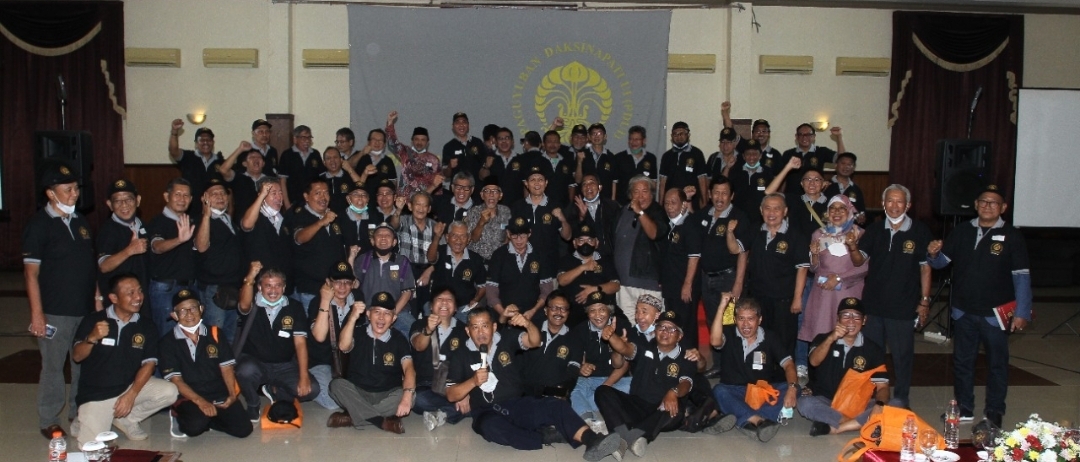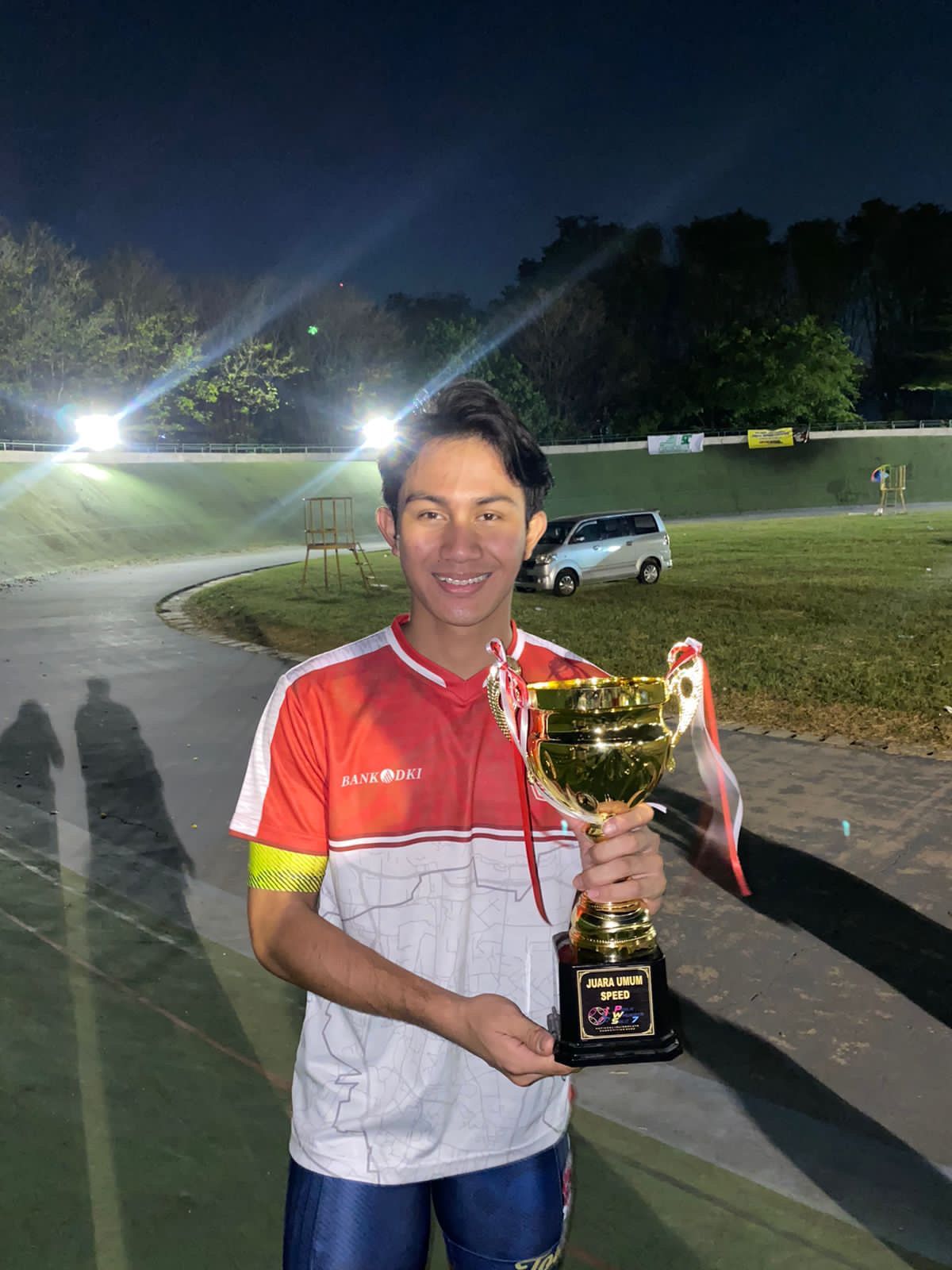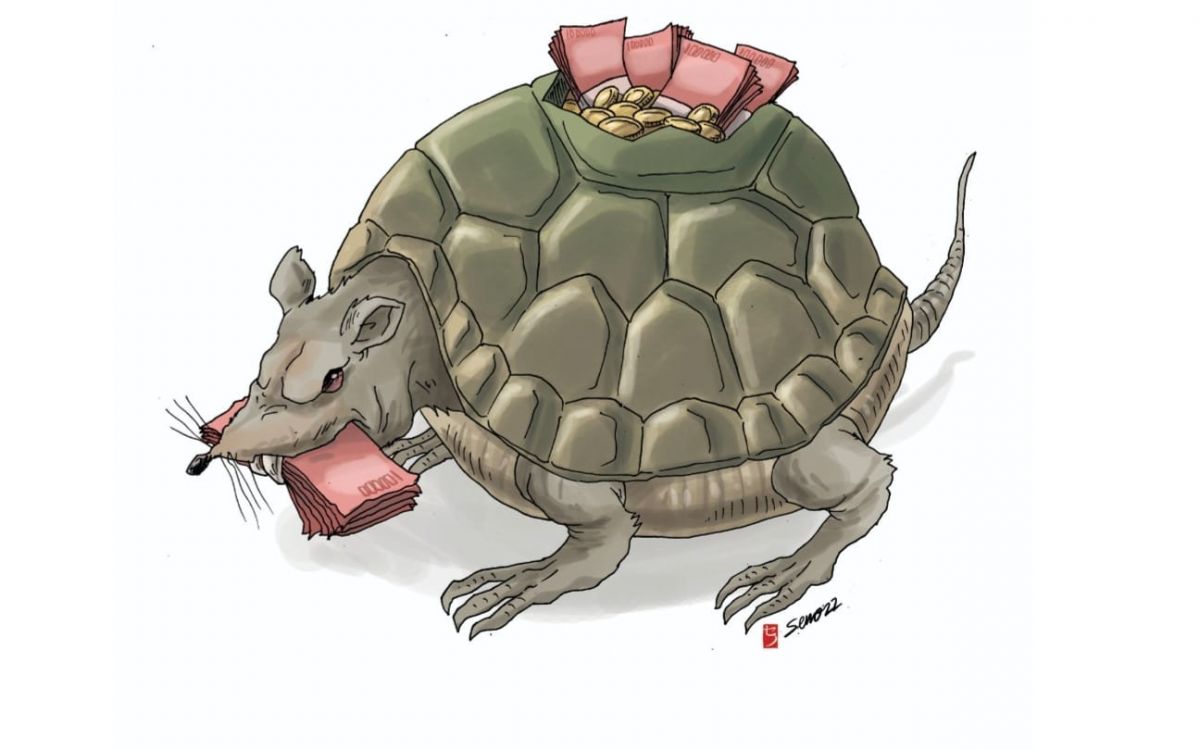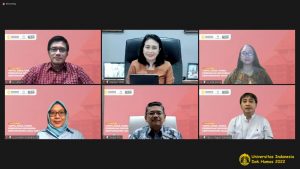
We are firmly convinced that the civilization of the Javanese will not be able to advance rapidly, as long as women are kept away from the efforts to advance the nation. This is a fragment of R.A. Kartini’s letter in the book Habis Gelap, Terbitlah Terang. In the quote, Kartini views women as having intellectual power, inner sensitivity, and resilience so that they deserve the same opportunities as men in developing themselves. Thanks to R.A. Kartini’s long struggle, equal human rights, including women and men, are recognized in the 1945 Constitution.
“Reading Kartini cannot be separated from the social and cultural construction that set the scene for her struggle. Because in that era, Kartini fought for literature, education, equal rights, and autonomy for women. During her lifetime, Kartini continued to strive for education for women. Kartini believed that the civilization of society would be more advanced if it was shouldered by men and women. Women are not limited to the role of wells, kitchens and mattresses,” said Prof. Dr. rer. nat. Abdul Haris as Vice Chancellor for Academic and Student Affairs, Universitas Indonesia (UI).
This statement was made by Prof. Haris in his remarks at the Minister Talk entitled “Cipta, Rasa, Karsa Indonesian Women Towards the Future”, on Friday (22/04). The webinar, which was held to commemorate Kartini Day, was attended by the Minister of Women’s Empowerment and Child Protection of the Republic of Indonesia (Menppa RI), I Gusti Ayu Bintang Darmawati, S.E., M.Si., and several leaders of faculties and departments within UI.
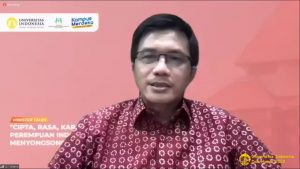
According to the Minister, although various positive changes have been felt by women, deep-rooted patriarchal values still make women experience inequality in accessing, participating in, and receiving the benefits of development in various fields. Women still experience marginalization, subordination, and discrimination. The inequality experienced by women is increasingly evident in Indonesia’s Human Development Index (HDI). This index measures the quality of human life through three important aspects, namely health, education and economy. Women have lower HDI values than men.
Another issue facing women is the inequality of women’s labor force participation. Multiple roles, unequal division of domestic labor, and difficulties in taking part outside the home make it difficult for women to occupy managerial positions. Based on World Bank data, Indonesia had the third highest maternal mortality rate in 2017. One of the drivers of the high maternal mortality rate in Indonesia is the rampant practice of child marriage. According to BPS 2018 data, around 1 in 9 women aged 20-24 years are married at child age, while men of the same age are only 1 in 100 children.
“We should not be pessimistic about this issue. Women are an extraordinary human resource force for the nation. We need to echo this narrative together. Women are half of our population, half of the nation’s resources. This means that the quality of women determines the quality of the nation. We need to join hands starting from the village level, academics and professionals, as well as the business world and the community to maximize the potential of women to actively participate for the country,” said Bintang in his presentation.
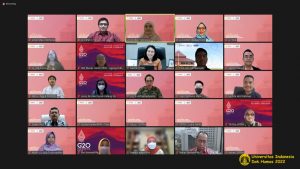
Later, UI and Kemenppa RI will work together to solve the problems of women and children in the community. UI’s concern for gender inequality is manifested through research institutions that focus on gender studies and the establishment of the Gender Studies Program at the UI Postgraduate Program. In addition, the Faculty of Medicine Universitas Indonesia (FM UI) also has a Female Cancer Program that focuses on treating cervical cancer and breast cancer, which are mostly suffered by women.
“FM UI is struggling so that cervical cancer screening can be carried out massively for all Indonesian people. Therefore, we need full support for this program. Although it is related to the Ministry of Health, the role of Kemenppa is also very large considering that this health problem mostly affects women,” said Prof. dr. Ari Fahrial Syam, Sp.PD-KGEH, MBA as Dean of FM UI .
In addition, therectorCommunity Service and Empowerment UI (DPPM UI), Laode Abdurrahman, also said that DPPM UI has 400 community service activities spread throughout Indonesia. One of them is the Gender Justice Village in Likupang District. This program is in line with Kemenppa RI’s efforts to empower women through cooperation with the Ministry of Home Affairs to build women-friendly and child-caring villages in 159 villages and 70 sub-districts. In the future, Universitas Indonesia and Minister of Women’s Empowerment and Child Protection Republic of Indonesia are expected to work together to find solutions to address gender issues in Indonesia.

